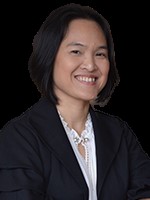Keynote I: |
|
 |
Prof. Kui Ren
Zhejiang University Titile: "Biometric authentication: Usability and Security" |
Bio:Kui Ren is Professor and Associate Dean of College of Computer Science and Technology at Zhejiang University, where he also directs the Institute of Cyber Science and Technology. Before that, he was SUNY Empire Innovation Professor at State University of New York at Buffalo. He received his PhD degree in Electrical and Computer Engineering from Worcester Polytechnic Institute. Kui’s current research interests include Data Security, IoT Security, AI Security, and Privacy. He received many recognitions including Guohua Distinguished Scholar Award of ZJU, IEEE CISTC Technical Recognition Award, SUNY Chancellor’s Research Excellence Award, Sigma Xi Research Excellence Award, NSF CAREER Award, etc. Kui has published extensively in peer-reviewed journals and conferences and received the Test-of-time Paper Award from IEEE INFOCOM and many Best Paper Awards from IEEE and ACM, including ACM MobiSys, IEEE ICDCS, IEEE ICNP, IEEE Globecom, ACM/IEEE IWQoS, etc. His h-index is 77, with a total citation exceeding 35,000 according to Google Scholar. Kui is a Fellow of ACM and IEEE. He is a frequent reviewer for funding agencies internationally and serves on the editorial boards of many IEEE and ACM journals. Among others, he currently serves as Chair of SIGSAC of ACM China Council, a member of ACM ASIACCS steering committee, and a member of S&T Committee of Ministry of Education of China. Abstract:Biometric authentication has been widely deployed and become more and more important due to its high usability and convenience. In this talk, we will present two new works on enhancements over facial and fingerprint biometrics. In the first work, we introduce an anti-spoofing facial recognition system that defeats impersonation attacks through integrating camera fingerprinting into the design. The second work is a new fingerprint sensing approach that exploits the friction-excited sonic wave for the purpose of user authentication. Both works are compatible with off-the-shelf smart devices and can achieve greater security without degrading the user experience. |
|
Keynote II: |
|
 |
Prof. Sheng Zhong Nanjing University Title: "some recent results on AI security" |
Bio:Sheng Zhong received his PhD from Yale University. He used to work at State University of New York at Buffalo, receiving NSF CAREER Award and early tenure promotion over there. Currently he is a full professor (level 2) and director of undergraduate studies at Nanjing University department of computer science and technology. He chairs IEEE computer society Nanjing section and ACM Nanjing chapter. He is a recipient of NSFC Distinguished Young Scholar Fund, and an associate editor of various research journals. Abstract:AI technologies are now extremely powerful. Therefore, related security threats are also increasing troublesome. In this talk, we survey some recent results on AI security. In particular, we cover privacy issues in MLaaS, adversarial samples, and also backdoor attacks. |
|
Keynote III: |
|
 |
Prof. My T. Thai
Title: "Making Blackbox Models Explainable" |
Bio:Dr. My T. Thai is currently a University of Florida (UF) Research Foundation Professor of Computer & Information Sciences & Engineering and Associate Director of UF Nelms Institute for the Connected World. Dr. Thai has extensive expertise in billion-scale data mining, machine learning, and optimization, especially for complex graph data with applications to healthcare, social media, blockchain, and cybersecurity. She has been working on various interdisciplinary topics, focusing on the underlying mathematical models, coupled with fast approximation algorithmic designs and scalable machine learning for dynamic, interdependent, and uncertainty systems. Her recent work has focused on differential privacy and interpretable machine learning for fairness and trustworthy AI. The results of her work have led to 7 books and 250+ publications in highly ranked international journals and conferences, including several best paper awards. Dr. Thai has received many research awards, notable ones are DTRA Young Investigator Award, 2009; the NSF CAREER Award. She is an IEEE Fellow. Abstract:
Despite the impressive feats of applying deep neural networks (DNNs) to many academic disciplines and business sectors, researchers and the public have grown alarmed by the fact that these models lack interpretability. They have been used as black boxes with a little explanation for why the models make such predictions. In this talk, we will take a closer look at recent local explainers and present a metric to quantify these explainers. Importantly, as explained features are not independent, we will introduce the nonlinearity explanation, called PGM-Explainer. Different from existing explainers where the explanations are drawn from a set of linear functions of explained features, PGM-Explainer can demonstrate the dependencies of explained features in a form of conditional probabilities. |
|
Keynote IV: |
|
 |
Prof. Schahram Dustdar IEEE Fellow | AAIA Fellow Chair Informatics; section of the Academia Europaea; Full Professor, TU Wien, Austria; Head of the Distributed Systems Group (DSG) Title: "Edge Intelligence - Engineering the New Fabric of IoT,Edge, and Cloud" |
Bio:Schahram Dustdar is Full Professor of Computer Science heading the Research Division of Distributed Systems at the TU Wien, Austria. He has an H-index of 78 with some 36,000 citations. He holds several honorary positions: University of California (USC) Los Angeles; Monash University in Melbourne, Shanghai University, Macquarie University in Sydney, University Pompeu Fabra, Barcelona, Spain. From Dec 2016 until Jan 2017, he was a Visiting Professor at the University of Sevilla, Spain and from January until June 2017 he was a Visiting Professor at UC Berkeley, USA. From 1999 - 2007 he worked as the co-founder and chief scientist of Caramba Labs Software AG in Vienna (acquired by Engineering NetWorld AG), a venture capital co-funded software company focused on software for collaborative processes in teams. Caramba Labs was nominated for several (international and national) awards: World Technology Award in the category of Software (2001); Top-Startup companies in Austria (Cap Gemini Ernst & Young) (2002); MERCUR Innovation award of the Austrian Chamber of Commerce (2002). He is founding co-Editor-in-Chief of ACM Transactions on Internet of Things (ACM TIoT) as well as Editor-in-Chief of Computing (Springer). He is an Associate Editor of IEEE Transactions on Services Computing, IEEE Transactions on Cloud Computing, ACM Computing Surveys, ACM Transactions on the Web, and ACM Transactions on Internet Technology, as well as on the editorial board of IEEE Internet Computing and IEEE Computer. Dustdar is recipient of multiple awards: IEEE TCSVC Outstanding Leadership Award (2018), IEEE TCSC Award for Excellence in Scalable Computing (2019), ACM Distinguished Scientist (2009), ACM Distinguished Speaker (2021), IBM Faculty Award (2012). He is an elected member of the Academia Europaea: The Academy of Europe, where he is chairman of the Informatics Section, as well as an IEEE Fellow (2016) and an Asia-Pacific Artificial Intelligence Association (AAIA) Fellow (2021). Abstract:As humans, things, software and AI continue to become the entangled fabric of distributed systems, systems engineers and researchers are facing novel challenges. In this talk, we analyze the role of IoT, Edge, Cloud, and Human-based Computing as well as AI in the co-evolution of distributed systems for the new decade. We identify challenges and discuss a roadmap that these new distributed systems have to address. We take a closer look at how a cyber-physical fabric will be complemented by AI operationalization to enable seamless end-to-end distributed systems. |
|